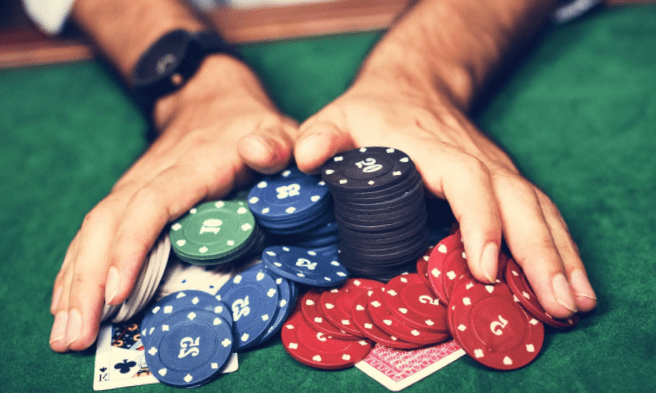Gambling addiction has been officially recognized as a disease in Germany since March 2001. This makes it the youngest addiction disease in the world ever. This is surprising because the passion for gambling (addiction) gripped mankind centuries ago. Long before other addictive substances were even known all around the world. It is defined as a non-substance-related addiction that does not directly cause physical damage to health.

How does a person become addicted to gambling?
It starts quite harmlessly. Someone comes into contact with gambling more or less by chance, or their curiosity is aroused by advertising. At first, winning money is the main motivation for gambling. The fascinating discovery is made that it is also possible to make money in a pleasurable way. In addition to the financial temptations, playing promises fun, variety, stimulation, switching off and a sense of achievement – the best prerequisites for being integrated into everyday life as an occasional leisure activity. As the player’s career progresses, the intensity of the game increases. The players try to experience again and again or even surpass the pleasurable sensations from the initial phase. Winning is associated with euphoria, with feelings of power and prestige.
Wins or their mental anticipation open the door to a fantasy world in which the player feels influential and powerful, successful and confirmed, in which fate becomes controllable and the decision about wins and losses controllable; in which grandiose plans are made and everything desirable seems realizable. Losses lead to bad moods such as disappointment, dejection, despair, feelings of inferiority. Especially after successive losses feelings of guilt, sometimes even panic, when the player becomes aware of the damage he has done to himself or his relatives.
The player can displace emerging discomfort by a renewed effort, which in turn generates euphoria. The desired state can be brought about as often as desired – the player is no longer concerned with winning money.
The money (the winnings) increasingly serves only as a means to an end, to ensure continued participation. Inevitably, losses increase. Formerly varied interests are more and more displaced by gambling. Family, education, or profession is neglected. Gambling is done secretly and a system of tall tales is developed to explain the absence and financial shortages.